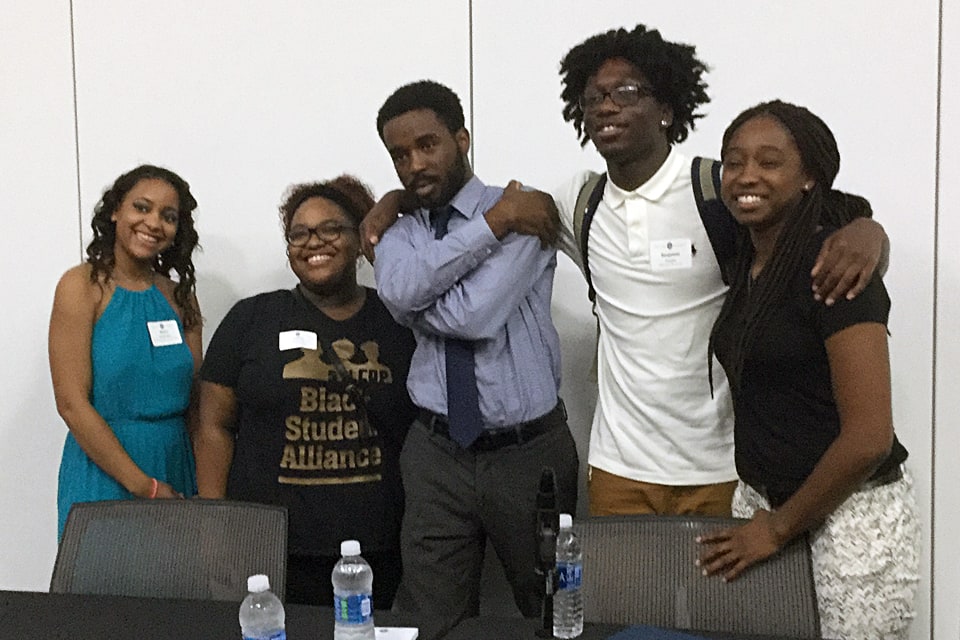Saint Louis University Hosts Race, Faith and Justice Conference
More than 100 people attended Saint Louis University’s Race, Faith and Justice Conference, organized by the Office of Diversity and Community Engagement, that was held on campus Aug. 4 through Aug. 6.
The conference was convened as one of a set of action items outlined in the Clock Tower Accords, an agreement established in October 2014 to enhance diversity, equity and inclusion not only on the Saint Louis University campus but throughout the broader St. Louis community, as well.
An organizing committee led by Jonathan Smith, Ph.D., special assistant to the president for Diversity and Community Engagement, invited community activists, faith leaders, students, faculty, civil rights experts, politicians, educators, elected officials, civic leaders and members of the Movement for Black Lives.
In its inaugural year, the conference theme of "Achieving Justice after Ferguson and Campus Demonstrations,” brought a wide range of voices and stakeholders to a series of nine panel discussions and two keynote speakers: Etefia Umana, chairman of the board of Better Family Life; and the Rev. Osagyefo Uhuru Sekou, author, documentary filmmaker, organizer and pastor.
Rising SLU freshman Brendan Underwood served as moderator for the panel sessions throughout the conference.
Over the course of three days, speakers from across the region conducted discussions that looked at the events after Ferguson, as well as at other protests across the country, issues of violence against African Americans and systemic racism in a variety of contexts.
“The panelists at this conference represented a spectrum of ideologies and included public officials, clergy, students, activists and educators,” Smith said. “The audience consisted of an equally wide spectrum. Many conferences I have attended do not usually attract and involve such diverse participants. That fact made the Q&A moments rather dynamic.”
Substantive discussions focused on education, civil rights, politics, student experiences, social justice activism and faith. Members of two student leader panels, which included participants from SLU, the St. Louis College of Pharmacy, Harris-Stowe, Lindenwood, Maryville, Southeast Missouri State, University of Missouri St. Louis and Webster, shared their thoughts about their own experiences at the colleges and universities they represented.
Faith leaders spoke of their role as healers, listeners and inspirers, particularly for those involved with social justice. Civic leaders, faculty members and two movement panels talked about race relations, shared individual experiences and work toward having complicated conversations regarding race, poverty, segregation and inequity.
“What every panel discussion made clear is the fact that the problems of race, poverty and inequality remain complex and difficult to solve,” Smith said. “At the same time, they shone light on the fact that many people are committed, in word and action, to making a difference.”


















